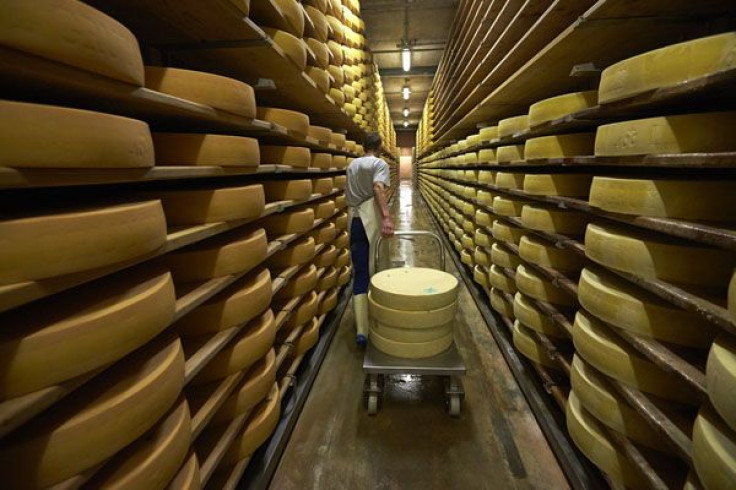FDA Bans Cheese-Aging Process On Wooden Surfaces Due To Concerns About Bacteria, Then Backs Down

The Food and Drug Administration (FDA) recently issued a ban on the practice of ripening or aging cheese on a wooden surface due to sanitary concerns. Following an alliance among cheese-makers across the United States looking to protest against the announcement, the FDA has decided to withdraw its claim and has even denied ever issuing the new policy.
“The porous structure of wood enables it to absorb and retain bacteria, therefore bacteria generally colonize not only the surface but also the inside layers of wood,” the FDA said in a statement. "The shelves or boards used for aging make direct contact with finished products; hence they could be a potential source of pathogenic microorganisms in the finished products.”
According to cheese blogger Jeanne Carpenter from Cheese Underground, Monica Metz, branch chief of the FDA's Center for Food Safety and Applied Nutrition's (CFSAN) Dairy and Egg Branch, replied to an inquiry by the New York State Department of Agriculture & Markets' Division of Milk Control and Dairy Services asking for clarification on the matter. Metz said the FDA considers the practice of using wood for cheese ripening or aging an unsanitary practice and a violation of the FDA’s Current Good Manufacturing Practice (cGMP) regulations.
A position statement released by the American Cheese Society (ACS) said: “Wood can be safely used for cheese aging when construction is sound and in good condition, and all surfaces are properly cleaned and maintained using sanitation steps that assure the destruction of pathogens.” The ACS also acknowledged that cheese-making safety is paramount among American artisanal cheese manufacturers and that cheese aged on wood has a long track record of safety while meeting FDA standards.
"According to the FDA this is merely proper enforcement of the policy that was already in place,” Rob Ralyea, senior extension associate in the Department of Food Science and the Pilot Plant Manager at Cornell University in New York, said in an email to industry professionals. “While the FDA has had jurisdiction in all food plants, it deferred cheese inspections almost exclusively to the states. This has all obviously changed under FSMA." The Food Safety Modernizations Act is a law that was signed by President Barack Obama on Jan. 4, 2011, aiming “to ensure the U.S. food supply is safe by shifting the focus from responding to contamination to preventing it.”
Early reports are now saying the agency had never planned on introducing this new policy and is not required to make certain changes to the cheese-making process under recent food safety regulations. Although the FDA has cited cheese-makers who use wood to ripen or age their products in the past, its reasoning was behind poor sanitation practices unrelated to the process.
“The FDA does not have a new policy banning the use of wooden shelves in cheese-making, nor is there any FSMA requirement in effect that addresses this issue,” the FDA told Forbes. “Moreover, the FDA has not taken any enforcement action based solely on the use of wooden shelves. In the interest of public health, the FDA’s current regulations state that utensils and other surfaces that contact food must be “adequately cleanable” and properly maintained. Historically, the FDA has expressed concern about whether wood meets this requirement and has noted these concerns in inspectional findings. FDA is always open to evidence that shows that wood can be safely used for specific purposes, such as aging cheese.”



























